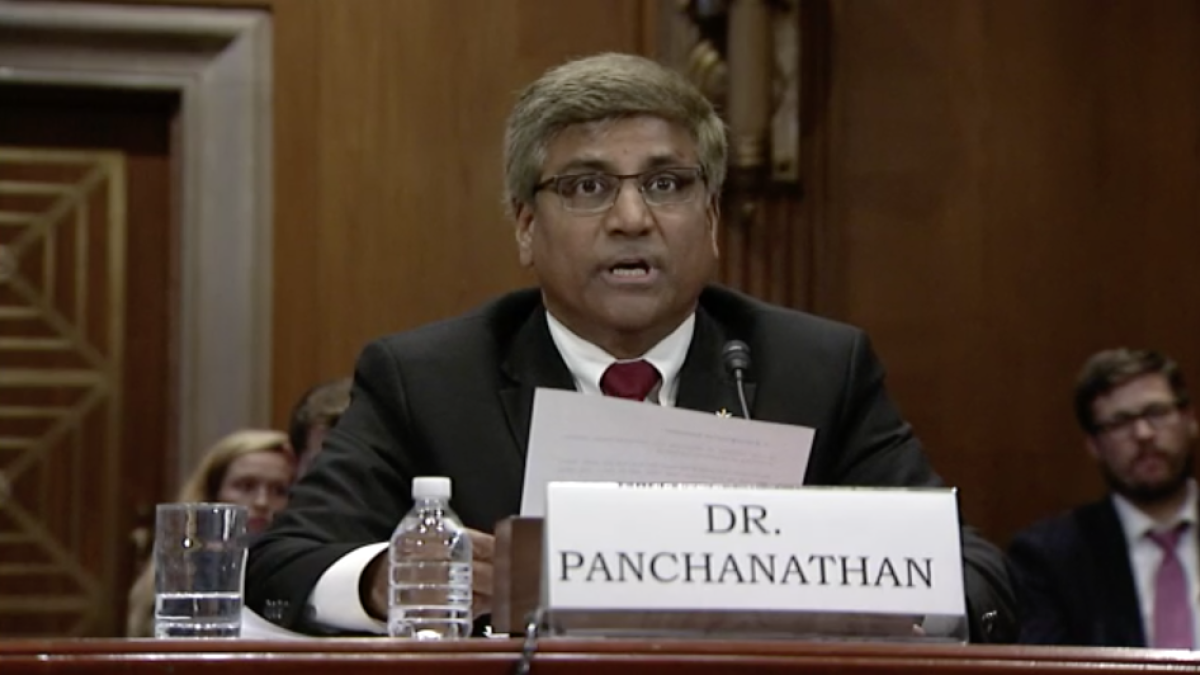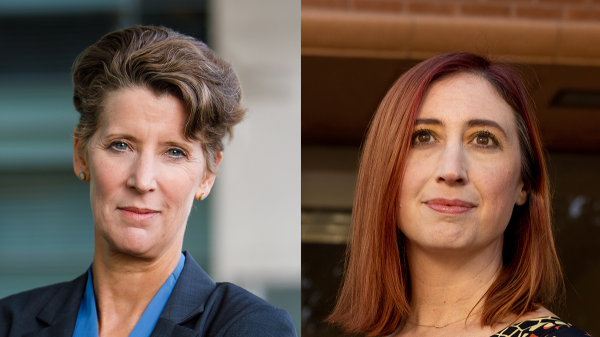Investing in university research strengthens US competitiveness, ASU innovation chief tells Senate

Sethuraman "Panch" Panchanathan, executive vice president and chief research and innovation officer at Arizona State University, testifies Tuesday before the U.S. Senate Subcommittee on Science, Oceans, Fisheries, and Weather in Washington, D.C.
The United States has always been in the race to be the best; only now, the race has more competitors. The U.S. Senate Subcommittee on Science, Oceans, Fisheries, and Weather explored the topic Tuesday, saying that the country’s edge on global competitiveness is challenged daily by countries like China, which have bolstered investments in science and technology.
Sethuraman "Panch" Panchanathan, executive vice president and chief research and innovation officer at Arizona State University, testified before the subcommittee in Washington, D.C., as part of the “Research and Innovation: Ensuring America’s Economic and Strategic Leadership" hearing to discuss the nation’s outlook on research and innovation, and the impact universities have on global competitiveness.
According to the American Association for the Advancement of Science, global research and development has increased by 100% since 2000, with U.S. investments only increasing by 40%.
In order to keep the U.S. ahead of global competitors, Panchanathan believes four key elements are needed: a strong research and development ecosystem, a strong learner ecosystem, a strong partnership ecosystem and a strong economic development ecosystem. He said our nation has entered a new, bold frontier in science and technology and believes it's vital to prepare all citizens for emerging technologies — the fourth industrial revolution.
“Automation is changing the ways we learn, live and work," he said. "Some jobs will be augmented, new roles will be born and some positions may dissipate. Therefore, citizens must become master learners with the capability to adjust and adapt throughout their life."
When asked if people are still looking to the U.S. for opportunities, Panchanathan replied, yes. However, he said we need to be more welcoming of talent around the globe — a sentiment expressed in one of his key points for a stronger learner ecosystem.
“It’s imperative that quality education and training opportunities, upskilling and reskilling of talent are accessible to all, regardless of their socioeconomic background, geographic location or where they are in their career and educational trajectory,” he said.
More University news

2 ASU faculty members elected to prestigious National Academy of Medicine
Two distinguished Arizona State University faculty members have been elected to the National Academy of Medicine.Sally C.…

ASU establishes Center for Free Speech, will host annual free speech forum
Arizona State University is establishing a new Center for Free Speech to encourage the uninhibited exchange of ideas, and the…

Public affairs professor, back at ASU after 3 years with NSF, is named Sackton Chair
After three years at the National Science Foundation, Professor Mary Feeney has returned to Arizona State University, where she…